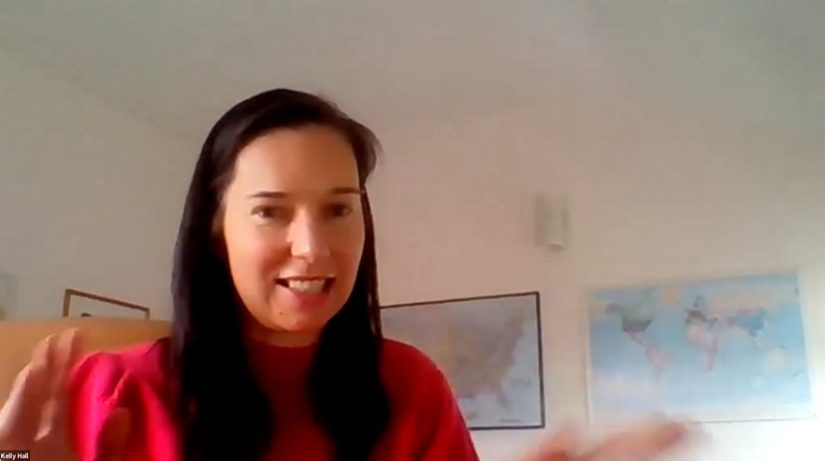
Yogyakarta, April 12th 2022─The Department of Social Development and Welfare (PSdK) of FISIPOL UGM held an online 2022 Masters Symposium on 11-12 April 2022. In the third session of the symposium, a lecturer of the Department of Social Development and Welfare, Nurhadi, became the moderator who guided the discussion with keynote speaker Kelly Hall from the University of Birmingham, England.
Kelly explained the general description and results of his research on social enterprises in the UK in a discussion entitled “Social Enterprise: An Organisational Model to Promote Health and Social Care”. According to Kelly, a social enterprise is a company that carries out business activities to address social problems and improve and empower communities, living standards, and the environment. He added that social mission plays an important role in running a social enterprise. However, Kelly emphasised that social enterprises are different from charitable organisations which only carry out their activities through donations.
“Social enterprises must conduct commerce and reinvest their profits back into social missions,” said this lecturer at the Department of Social Policy, Sociology and Criminology, University of Birmingham.
After ten years of researching social enterprise in the areas of health and nursing or social care (health and social care), Kelly found that social enterprise in the field of nursing or care is somewhat difficult to define, due to the breadth of the scope of this field. Its business activities are also diverse, ranging from health clinic services, home-care, baby care (day care) and others. She gave an example of activities carried out by social enterprises, such as inviting people with disabilities to garden, providing skills for young people, sports activities, and so on.
“I find that social enterprises often form many diverse nursing services,” she explained.
Based on the results of his research, Kelly found a number of challenges for social enterprises. Most of the social enterprise movers lack knowledge about running a business, because of their non-business background. For example, the founder of a health social enterprise who is a doctor and nurse. In addition, many people still think that social enterprises are private companies. In fact, social enterprises (especially in the health sector in the UK) also receive funding from the government, especially financial support from local authorities. Unfortunately, not all local authorities in the UK understand the role of social enterprise in society. Therefore, the distribution of the number of social enterprises in several regions of the UK is very diverse, depending on the support of citizens and governments in each region.

“What are the challenges facing social enterprises in the UK during the COVID-19 pandemic?” Indri Tedja Tyasning, one of the symposium participants, asked.
Similar questions were also asked by several other participants. Kelly explained that during the COVID-19 pandemic, social enterprise services, especially in the nursing sector, turned online. This change is apparently able to increase service users because it is no longer limited to regions. However, Kelly added, social enterprises in the UK are adapting in different ways, but generally they are helping families who need certain support during the pandemic.
